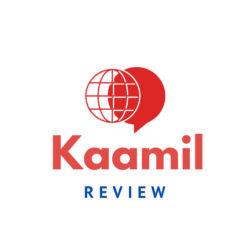Definition and Principles of Financial Freedom
Financial freedom is the ability that allows you, at some point in your life, to not have to rely on a paycheck to maintain your lifestyle as well as follow your dreams. It is having that open space to make choices in life, unencumbered and unconfined by any financial limits.
By following these principles, such individuals can start building the foundations on which a span for long-term stability and independence may be based. The whole essence of financial freedom is not universal; it depicts something different for everyone, hence largely tailor-made on values, wants, and circumstances.
Understanding What Financial Freedom Means and Its Core Principles
The term financial freedom itself is much more than just an idea-it is a goal that changes a life by empowering people to live it on their own terms. It means having choices free from any financial pressure-that is, your money working for you instead of the other way around. Achieving financial freedom is largely predicated on certain tenets-disciplined, planned management and, most importantly, a good understanding of these very tenets.

What Is Financial Freedom?
Financial freedom, of course, means being able to harness sufficient wealth or passive income to maintain living expenses indefinitely. Freedom in this sense means that you are able to live your life doing what you are truly passionate about-travel, interests, or whatever you care about the most-without having to get off your back in search of a job for plain survival.
Financial freedom is not synonymous with being wealthy; rather, it is characterized by living a way in which one’s resources align more closely with one’s values and life goals. For some, that means retiring early; for others, it allows support for a family without worries; and for others yet, it is just a big sigh of relief thanks to having financial security.
The Principal Pillars of Financial Freedom
Clarity and Goal Setting
Financial independence starts with a clear vision of what it looks like for you: setting smart goals that are specific, measurable, realistic, achievable, relevant, and time-bound. Deep down, you know that clarity aids towards making every financial decision conform to dream purpose-whether you are saving for a home, getting out of debt, or retiring from work early.
Budgeting and Mindful Spending
The backbone of financial independence is a good budgeting system. This practice will help you become attuned to where your money is going and help you live within your means. Mindful spending thus means directing your scarce resources towards priorities and eliminating the undesired expenses.
Savings and Emergency Fund
Saving is an absolute must and acts as one of the big principles from which financial freedom starts. An emergency fund, usually enough to cover three-six months of expenses, can keep unexpected financial roadblocks from straying you off course toward financial freedom.
Investing for Growth
Building wealth is not just accumulation of savings; only hard cash would not impact one’s path to financial independence. Investments are towards creating wealth using the power of compounding, dividends, and capital gains. This not only reduces risk but also enhances long-term returns when diversified among stocks, bonds, real estate, and mutual funds.
Debt Management
The burden of debt can hinder financial freedom. So it’s imperative that one pays off the high-interest debt first and avoids unsecured loans. Once you get the debt into manageable levels, you can use your resources for investment.
Create Multiple Streams of Income
Relying on one source of income is very risky. While another source of income can be as active as a secondary job, financially independent individuals often receive passive income from investments, rental properties, or odd jobs that allow primary job independence and wealth acceleration.
Financial Literacy and Continuous Study
Achieving financial freedom is based on making informed choices. Financial literacy about interest rates, tax-saving strategies, and investment options will help you make better decisions. Ongoing learning will enable you to stay ahead in this very competitive field.
Delayed Gratification
It means giving up short-lived comforts for longer-lasting advantages. It is the ability to refrain from making impulsive purchases while emphasizing goals leading to the enjoyment of realistic financial security.
Flexibility
Life situations, markets, and priorities change over time. This, therefore, adds flexibility to your financial freedom: the ability to alter the strategy if necessary but stay focused on a long-term goal.

In conclusion,
financial freedom is not just about bank numbers. It is about creating a life of freedom that allows you to pursue your passions, one in which you can sleep peacefully knowing that you have the financial might to create your destiny. Starting with the small things that matter will make life easier than you think; allow room for these in your life in the day-to-day routine, and you will be so close to the independence you desire.
